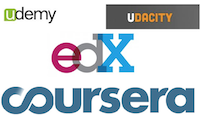MOOCs and the claim of education for all: A disillusion by empirical data
December 4, 2015
This post is filed under: Daily News, Higher Education, MOOCs, Research.
Tagged as: Educational Systems, Instructional Systems, Software Systems

MOOCs have shaped the discussion on learning with digital media for the last few years. One claim of MOOCs in the tradition of Open Educational Resources is to expand access to education, mainly in the field of higher education. But do MOOCs meet this claim? The empirical data in this article confirm the suspicion that, despite all the heterogeneity of the participants, MOOCs are mostly used by people with a higher level of education. Data of participants from two MOOCs from Germany, as well as, empirical data from large providers and universities are used. But due to the different forms of MOOCs there is no comprehensive proof possible. With respect to the Knowledge Gap Theory and the Digital Divide, a theoretical framework is provided to explain possible causes of a different usage. The aim of the article is to point out the risks of an increase of inequalities as a consequence of hyping MOOCs and to stimulate a discussion about possible answers to make MOOCs an instrument of education for all.
 MOOCs have shaped the discussion on learning with digital media for the last few years. One claim of MOOCs in the tradition of Open Educational Resources is to expand access to education, mainly in the field of higher education. But do MOOCs meet this claim? The empirical data in this article confirm the suspicion that, despite all the heterogeneity of the participants, MOOCs are mostly used by people with a higher level of education. Data of participants from two MOOCs from Germany, as well as, empirical data from large providers and universities are used. But due to the different forms of MOOCs there is no comprehensive proof possible. With respect to the Knowledge Gap Theory and the Digital Divide, a theoretical framework is provided to explain possible causes of a different usage. The aim of the article is to point out the risks of an increase of inequalities as a consequence of hyping MOOCs and to stimulate a discussion about possible answers to make MOOCs an instrument of education for all.
MOOCs have shaped the discussion on learning with digital media for the last few years. One claim of MOOCs in the tradition of Open Educational Resources is to expand access to education, mainly in the field of higher education. But do MOOCs meet this claim? The empirical data in this article confirm the suspicion that, despite all the heterogeneity of the participants, MOOCs are mostly used by people with a higher level of education. Data of participants from two MOOCs from Germany, as well as, empirical data from large providers and universities are used. But due to the different forms of MOOCs there is no comprehensive proof possible. With respect to the Knowledge Gap Theory and the Digital Divide, a theoretical framework is provided to explain possible causes of a different usage. The aim of the article is to point out the risks of an increase of inequalities as a consequence of hyping MOOCs and to stimulate a discussion about possible answers to make MOOCs an instrument of education for all.






